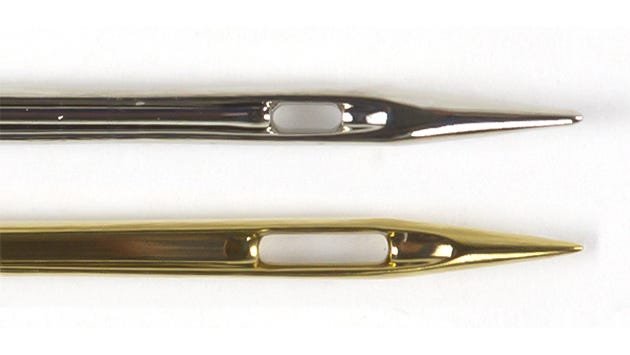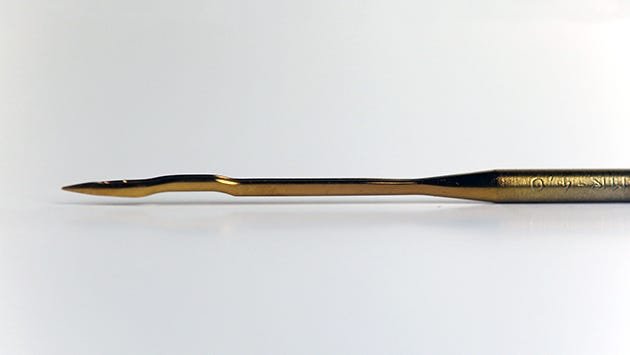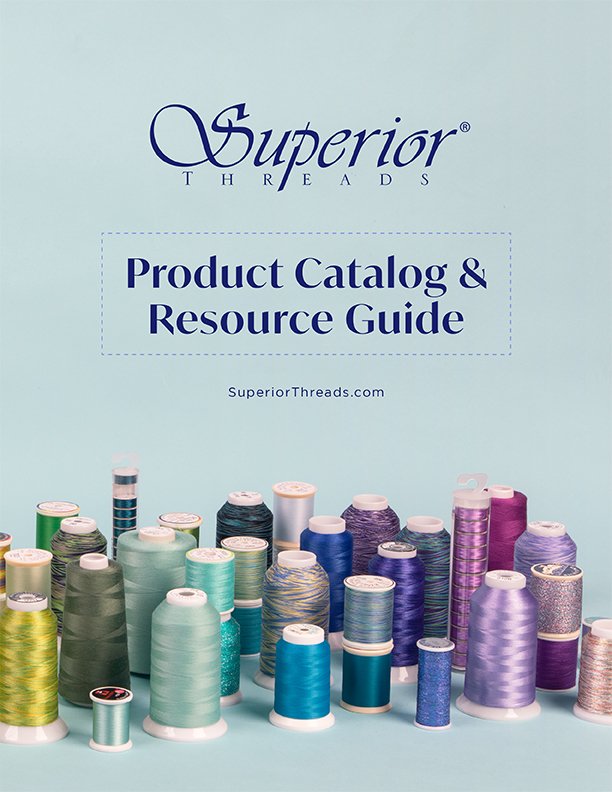Superior Education
TITANIUM-COATED NEEDLES
- TOPSTITCH NEEDLES
- TITANIUM COATED
Why we love titanium-coated needles
Occasionally we receive questions about titanium-coated needles. Some have concerns that titanium, being so strong, can cause the needle to damage their machine. If this were true, sewing factories around the world would not use titanium-coated needles. In fact, one of the most commonly-used needles in clothing manufacturing facilities has a titanium coating. A titanium-coated needle is simply that -- a hardened metal needle with an ultra-thin titanium nitride coating (we're talking micrometers thin). What exactly is titanium nitride?
Titanium nitride is an extremely hard, ceramic material that is applied to the surface of a metal object through a process called physical vapor deposition. When it comes to titanium nitride, less is better. This is why the coating is so thin. If we were to apply a thick coating to a needle, it would flake off and the benefits of using a titanium nitride needle would be diminished.
A needle with titanium nitride stays sharper longer because of its excellent abrasion resistance. A titanium-coated needle will last up to six times as long as a standard nickel-plated needle, thanks to its Superior abrasion resistance.

Titanium nitride is a beautiful shade of gold

A titanium-coated Groz-Beckert longarm machine needle
The misconception that a titanium needle is extremely strong and can cause damage to your machine if it breaks is caused by the association with titanium metal's reputation for being stronger than steel. It's important to point out that a titanium-coated needle is only coated with titanium. It is not constructed out of titanium and is no stronger in terms of breaking strength than a standard nickel-plated needle.
Interesting facts about titanium nitride coating:
- It's a very hard substance (three times harder than chrome)
- Thin film is typically 3 micrometers or .0001” thick (The average human hair is thicker, .0038")
- Uniform coating with no buildup on edges or drip spots
- Can withstand high temperatures and heat from friction
- Conductive and does not oxidize
- Is non-toxic and used for medical devices (knee implants) and food processing equipment
- Forms an outstanding bond to the base material that will not blister, flake or chip
- Tools typically last 5 to 8 times longer than uncoated tools
- Gold in color
The question becomes, "why not use a titanium-coated needle?" With the above benefits and the cost being a mere fraction more than standard needles, it makes sense to be able to use your needle an average of six times longer than a standard needle.

 View Our Product Catalog
View Our Product Catalog